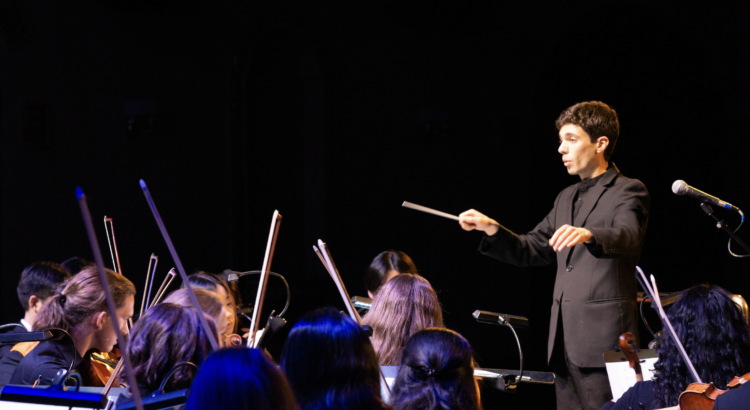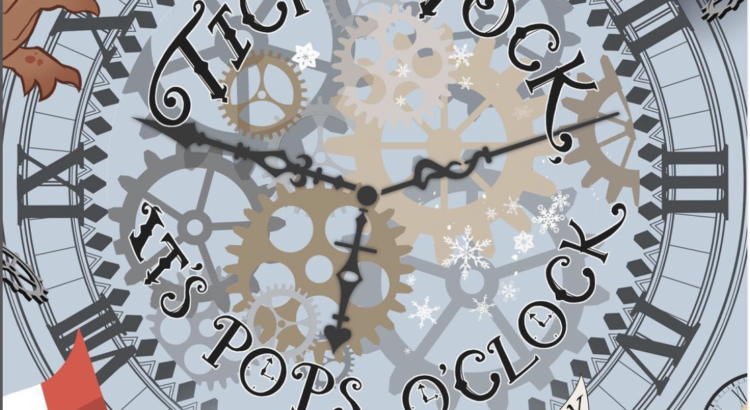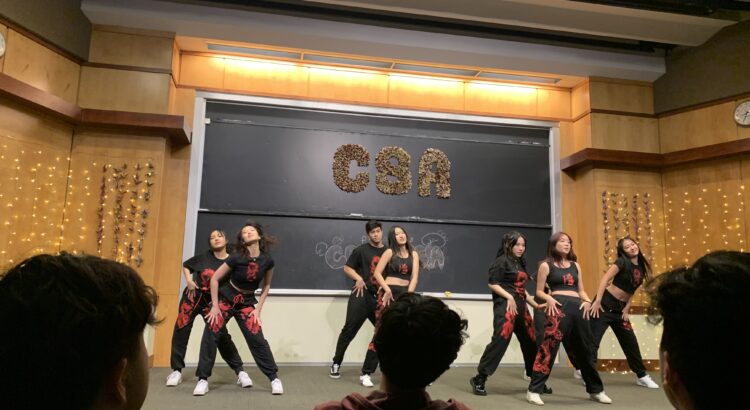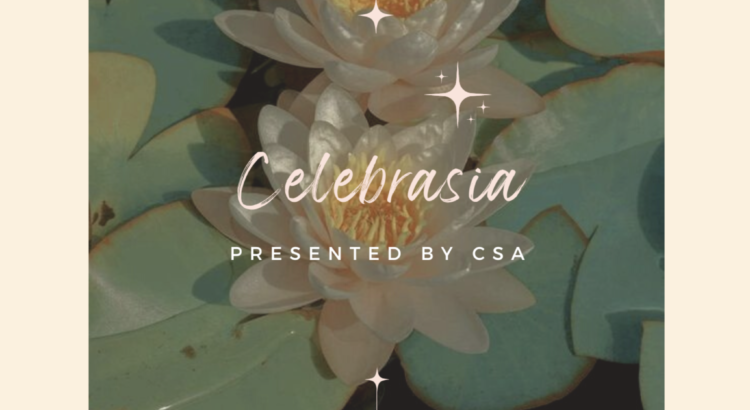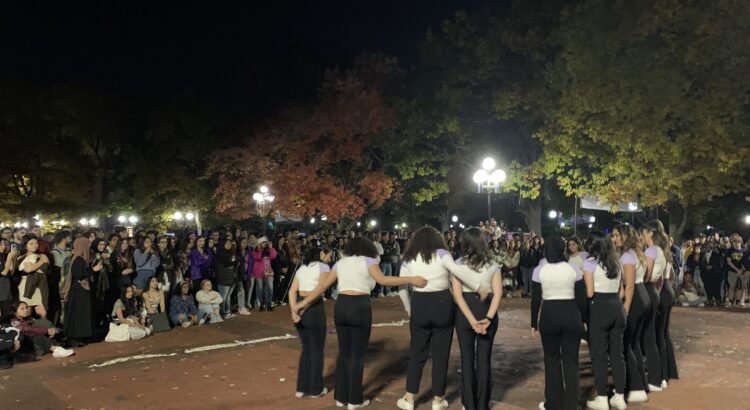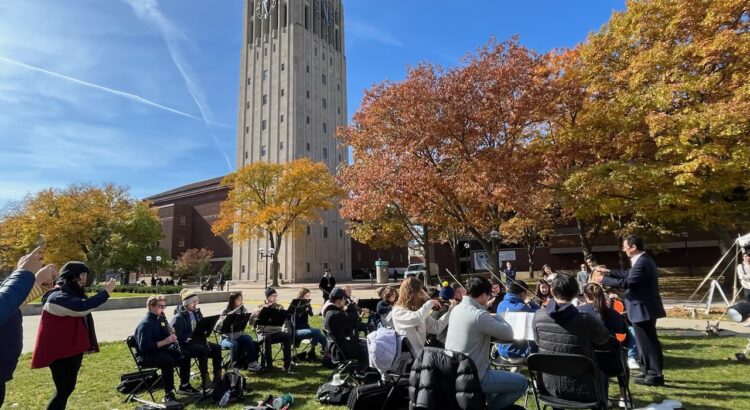*Photo of the conductor, Luca Antonucci, taken by @willzhang*
The Michigan Pops Orchestra concert “Tick Tock, It’s Pops O’Clock” had an impressive turnout despite being at the same time as the game, and there were many elderly people in the audience for an organization even students don’t know about. It was heartwarming to see the local community and the University come together.
The most memorable part of the concert for me is actually the opening piece: it began quietly and suspensefully before growing into a fascinating, powerful melody that really boasted how wonderful the acoustics in the Michigan Theater is. I normally attend orchestral performances in Hill Auditorium, which is renowned for its acoustics, but due to its sheer size, the music doesn’t reach the outer audience as well.
Another highlight was concertmaster Katie Sesi’s solo in Vivaldi’s Winter. I don’t know what to comment on her playing beside it being phenomenal. This will be the last semester Katie, who is also Executive Director, will be in Pops. Her speech was very bittersweet, and I’m glad she got to be featured in various ways like also being conductor.
How hard the students worked really showed in their performance: it was incredible how well-timed the OSTs and films were with each other, and I particularly enjoyed the scene in the Harry Potter film when Buckbeak, a dog, bites Malfoy by yawning. The audience’s offbeat clapping for the Victors was also hilarious.
Unfortunately, the singers’ voices didn’t project clearly, possibly because of the mics. The collaboration with the SMTD theater students was one of the pieces I was looking forward to the most, so that was rather disheartening.
Nevertheless, I still loved the event, and I look forward to what Pops will bring us in the future.
Get it? Time theme? 😀

